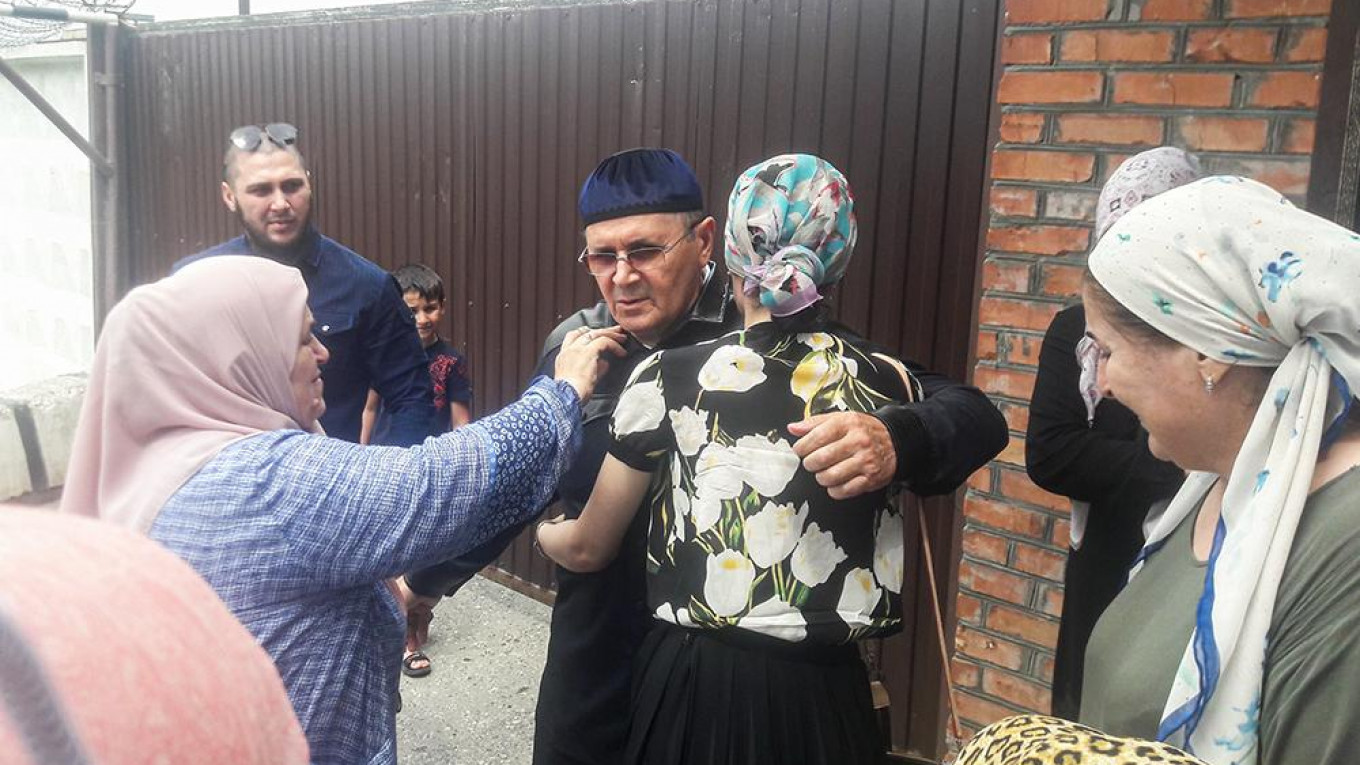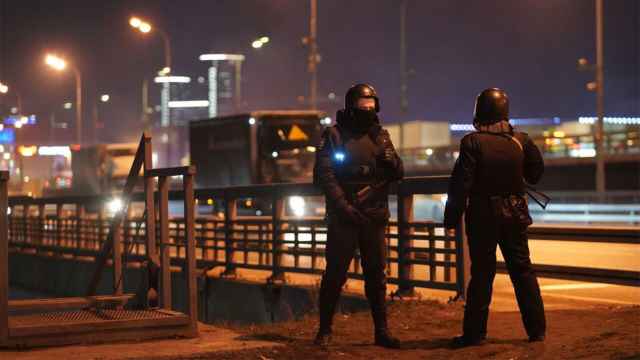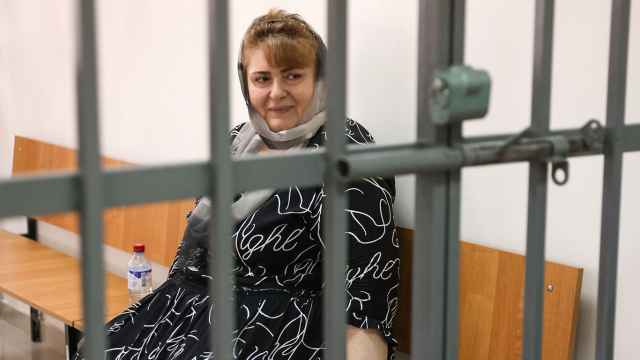Oyub Titiyev, a prominent human rights leader in Russia's republic of Chechnya, was released from Russian prison on Friday morning, more than 18 months after first being detained on drug charges his supporters say were fabricated.
Titiyev, who runs the office of the Memorial Human Rights Center in the southern Russian region, was detained in January 2018 by police who said they had found 206.9 grams (7.3 oz) of cannabis in his car after stopping him to check his documents. Human Rights Watch said the trial was based on “bogus marijuana possession charges" and his supporters say he was framed as punishment for his human rights work in Chechnya.
After his release Friday morning, Titiyev said he would continue his human rights work.
"I will continue to work, but not in Chechnya — [I'll work] in a different region," he told the RBC news website.
"I am afraid to ask anyone in Chechnya to work in this sphere," he said. "There are no guarantees and I don't want to put my colleagues at risk," he added.
Titiyev was granted early release on parole earlier this month, less than three months after being sentenced to four years in a penal settlement on illegal drugs possession charges.
A Message from The Moscow Times:
Dear readers,
We are facing unprecedented challenges. Russia's Prosecutor General's Office has designated The Moscow Times as an "undesirable" organization, criminalizing our work and putting our staff at risk of prosecution. This follows our earlier unjust labeling as a "foreign agent."
These actions are direct attempts to silence independent journalism in Russia. The authorities claim our work "discredits the decisions of the Russian leadership." We see things differently: we strive to provide accurate, unbiased reporting on Russia.
We, the journalists of The Moscow Times, refuse to be silenced. But to continue our work, we need your help.
Your support, no matter how small, makes a world of difference. If you can, please support us monthly starting from just $2. It's quick to set up, and every contribution makes a significant impact.
By supporting The Moscow Times, you're defending open, independent journalism in the face of repression. Thank you for standing with us.
Remind me later.






